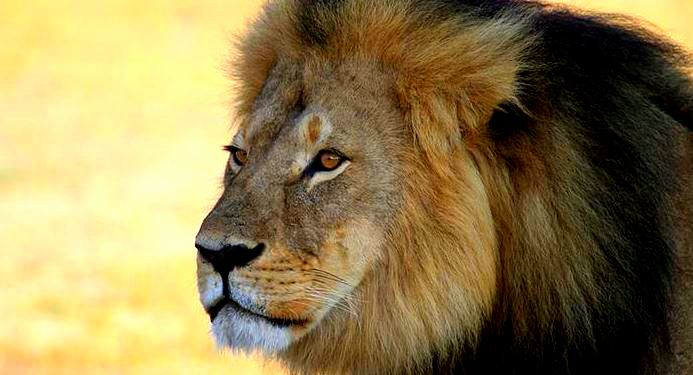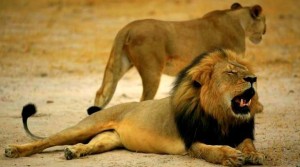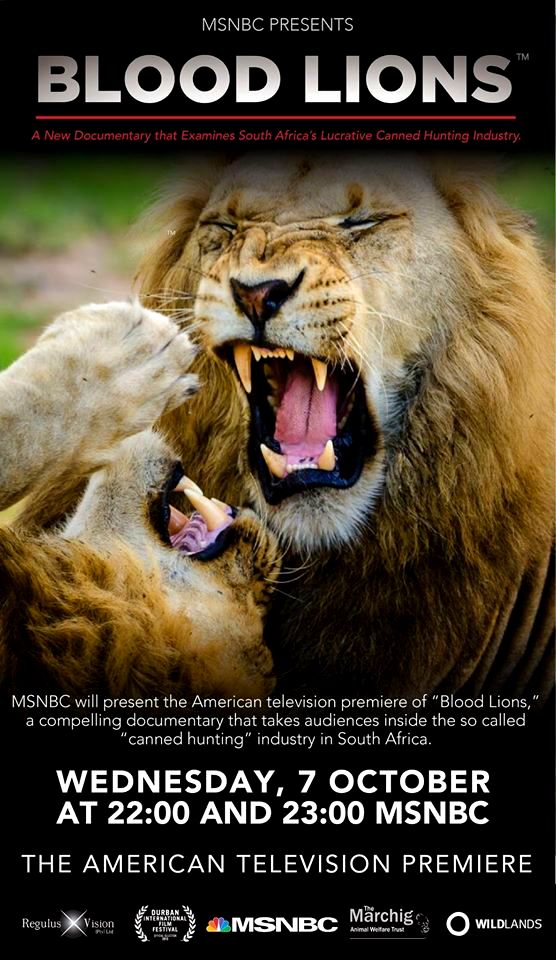On 28 September 2015, Zimbabwe was again presented with an opportunity to prove to the world that it cares for its wildlife more than profit; that it will condemn and prosecute anyone found in contravention of local regulation pertaining to hunting and treatment of its wildlife.
It’s been over two months and exactly three months this week since Zimbabwe’s Cecil The Lion was brutally slaughtered on July 1, 2015 by American dentist Walter James Palmer. This was done with the assistance of two locals: landowner Honest Trymore Ndlovu and self-professed “professional” hunter and guide, Theo Bronkhorst. The incident’s brutality led to levels of unprecedented global outrage which precipitated into deafening calls for a total ban on trophy hunting, including prosecution of everyone involved.
Zimbabwe responded to the mounting pressure by initiating a series of half-hearted measures, including a brief suspension of all hunting activities involving lions, leopards and elephants. Authorities also arrested two local accomplices involved in the incident: Honest Ndlovu, the owner of Antoinette Farm where Cecil was lured into and illegally killed without proper documentation and permit, as well as self-professed “professional” hunter and guide Theo Bronkhorst, the alleged mastermind of the illegal hunting excursion, an act which culminated into what is now the infamous inhumane, brutal slaughter of an animal and of the worst kind. Both Ndlovu and Bronkhorst were later released on $1000 bail each.
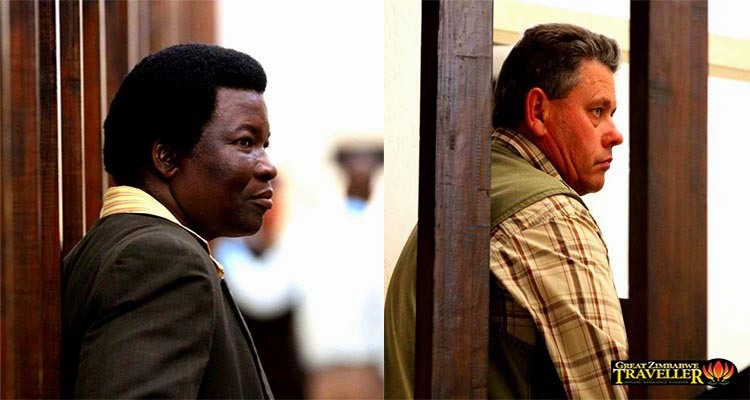
The two co-accused in the illegal killing of Cecil. Landowner Honest Ndlovu (L) and Theo Bronkhorst (R), self-professed “professional” hunter and guide.
Since then, a series of events have developed but none involve prosecution of anyone involved in Cecil’s illegal killing. While both Honest Ndlovu and American dentist Walter Palmer have successfully managed to stay out of public radar and avoided controversy, the same cannot be said for Theo Bronkhorst who seems to foolishly embellish the spotlight from an infamous act.
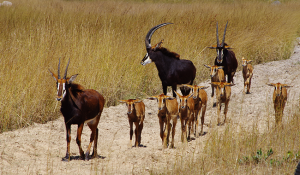
Family of sables on a stroll at Imire Rhino & Conservation. Theo Bronkhorst was arrested and charged for smuggling similar wildlife without permit. Photo Credit: Imire
Already, Bronkhorst has been implicated, arrested and is on a second bail in an unrelated case to the illegal hunting and killing of Cecil. According to Zimbabwean Police, Theo Bronkhorst was arrested on September 15, 2015 on new charges of smuggling and illegally transporting 29 sables without permit across the border to South Africa. As with the Cecil case, and what has become a typical Bronkhorst trademark, the repeat offender denied involvement in the smuggling, despite being caught in the act. He was later released on bail.
All Eyes On Zimbabwe
On September 28 2015, Theo Bronkhorst, the hunter and guide who planned the illegal hunt appeared in court to face charges in his role in the Cecil case and for “failing to prevent an illegal hunt,” a serious charge which could see him sentenced to 15 years in jail if convicted. In the now typical familiar Bronkhorst denial fashion, he denied any involvement and insisted he had all the required permits to kill and brutally slaughter an aged lion outside the boundary of its home, the Hwange National Park, albeit after it (Cecil) had been lured there by bait.
The case has been adjourned to October 15, when the judge will decide whether to proceed with the case, or drop it in its entirety. To all the invested parties, animal rights organizations, conservationists and animal lovers who had been anticipating some form of resolution, October 15 is now the date to watch for. Despite this setback, whatever decision Zimbabwe renders through its presiding officials, it will be of global interest as its outcome will have reverberating consequences throughout the industry, both domestically and internationally. The decision will also set precedence on trophy hunting in Africa, particularly within the context of those few countries where hunting still remains legal, including South Africa, Botswana and Namibia.
Zimbabwe, whose international reputation has been tarnished by negative media portrayal is being offered a chance at redemption. Authorities need to cease this opportunity with this case to show leadership. Whether the country recognizes this, it is about to play a fundamental role in determining the future of hunting in Africa. All eyes are on Zimbabwe and the onus now weighs heavily on the country to show leadership
This is another opportunity for the country to prove that while it values the life of all wildlife, it will not abdicate its responsibility to prosecute individuals, foreign or local, found to be contravening local laws pertaining to wildlife protection and hunting. That includes setting an example by prosecuting locals who fall within this category, including revoking all their memberships in local industry and subsequent related international associations, not excluding a life ban from any involvement or association with wildlife of any kind. Such measures will serve as deterrence to would-be future offenders and prevent further illicit operations in wildlife.
The Illegal Slaughter of Cecil The Lion
On July 1st 2015, 13-year old Cecil was unlawfully lured out of the safety of Hwange National Park by using bait, an illegal act which contravened the country’s Parks & Wildlife Act. With the involvement and collaboration of US dentist Walter Palmer and local hunter Theo Bronkhorst, Cecil was poached and later illegally killed, decapitated and skinned at Antoinette Farm, a property that had no permit or hunting concession for a lion quota.
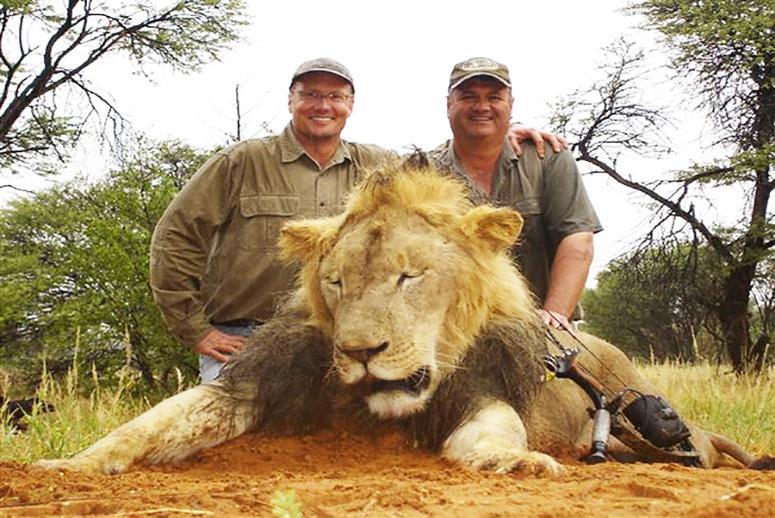
Walter Palmer (L) posing with another lion he killed before illegally killing Cecil (not pictured)
Source:Facebook
Cecil suffered a gruesome death in the most inhumane manner. He was shot with a high-power crossbow, left to suffer and endure 40 hours of agonizing pain before being fatally shot in the head the following day. He was then decapitated and skinned, with his carcass left at the mercy of the cruel wilderness of Hwange.
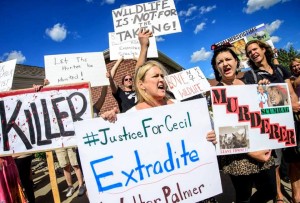
Cecil’s brutal slaughter became a galvanizing force for animals rights advocates and animal lovers to challenge the powerful hunting lobby.
Since then, Cecil’s killing has become a galvanizing force to advocate against inhumane killing of animals. There is renewed determination to change perceptions and sway opinions against the perceived barbaric outdated sport of the privileged few. Proponents of trophy hunting are losing the media wars as they are portrayed as corrupt individuals targeting African wildlife by colluding with corrupt officials to take advantage of regulatory loopholes and weak enforcement to subvert laws for their benefit at the expense of local resources.
The Dangers in Failure to Act
Immediately after the global outrage, Zimbabwe was presented with an opportunity to prove to the world that it is a country of laws, that it believes in equal application and enforcement of the law regardless of one’s financial status or influence in society, industry or international bodies. However, this continued failure to punish or prosecute known offenders sends a bad message, that Zimbabwe is a country where known criminals and repeat offenders can commit crimes with impunity. Such actions and blatant inactions have devastating consequences for a country in dire need of acceptance into the global community of nations, and that is at the same time, appealing to be given a second chance. Bad decisions and inactions have consequences.
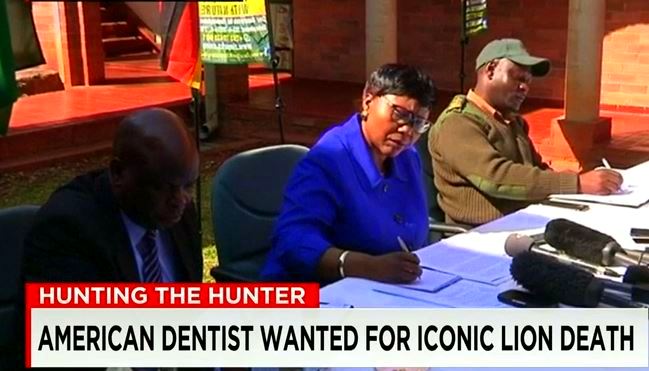
Zimbabwean authorities might no longer be keen on pursuing the extradition of US dentist Walter Palmer but campaigns against trophy/sport hunting have not abated. Photo Credit: AFP
While Zimbabwean authorities might opt to look away in the hopes that this case dies, there is danger with this rather unorthodox approach. What if the majority of the western population who are not trophy hunters and, who make up the majority of travellers to Zimbabwe and South Africa decide to boycott local tourism that is perceived to value and put more emphasis on profit over the welfare of its animals?
Furthermore, is protecting one or two individuals worth sacrificing the entire industry and its overall future? Or is severing the rotten parts to save the rest of the body a wise choice?
Whatever the challenges, this is a tough decision which Zimbabwean authorities will have to make, a hard choice which entails considering current and evolving global sentiments pertaining to hunting and overall future of the local tourism industry.
Changing Attitudes
Although attitudes towards trophy hunting have been changing overtime, Cecil’s brutal killing was a turning point and defining moment. His death became the torch and spark needed to light the fire. The unprecedented anger did not emanate only from anti-hunting advocates or animal rights activists, it also came from avid hunters and pro-hunting advocates who felt disgusted by the sheer brutality and inhumane nature of the act. The anger was also directed towards the role played by some industry professionals who are supposed to be guardians and upholders of general rules of engagement and practices governing the industry, but failed!
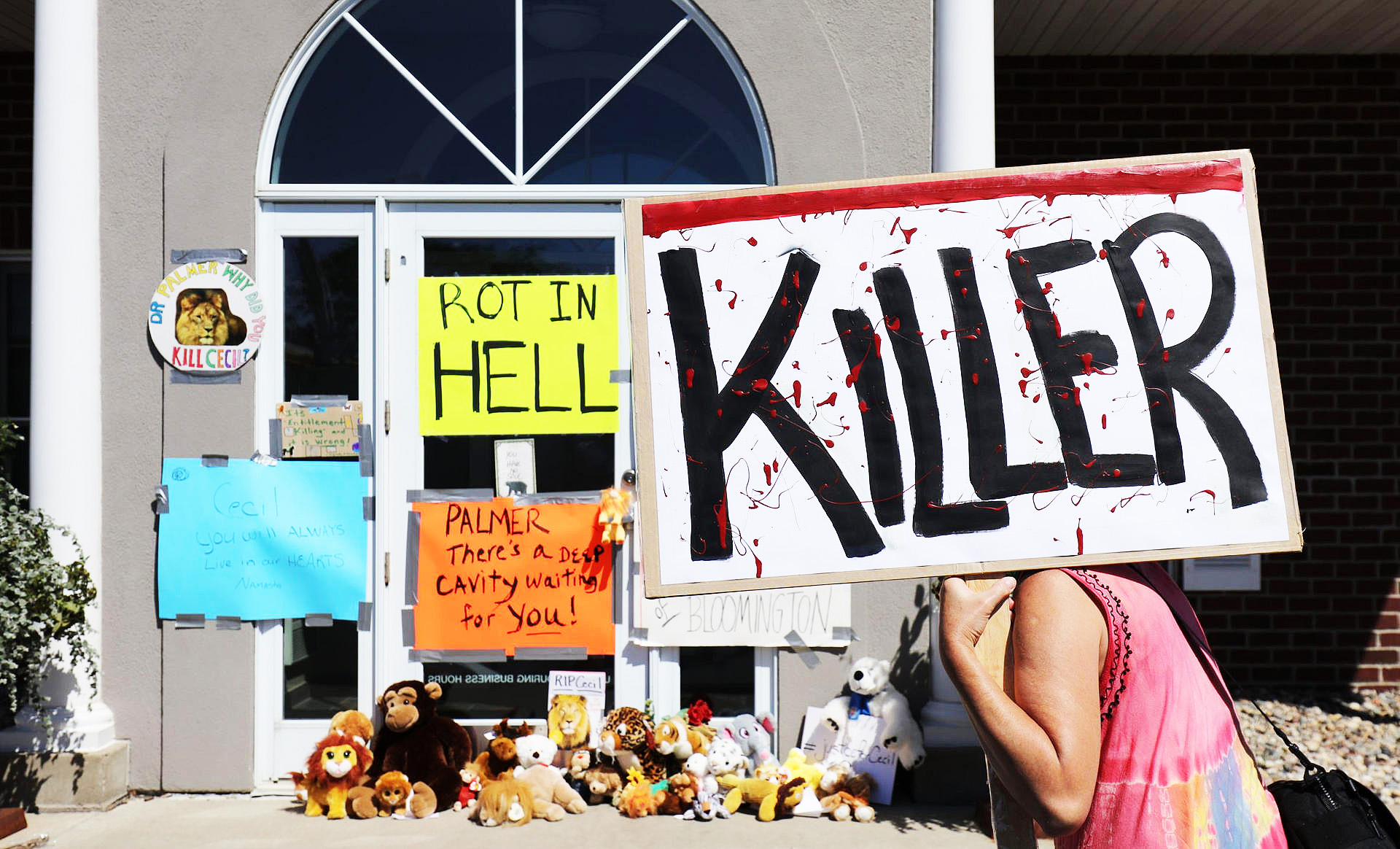
Changing attitudes as indicated in this BLOOMINGTON, MN picture taken outside Walter Palmer’s River Bluff Dental Clinic. Adam Bettcher/Getty Images/AFP
While it took a famous Zimbabwean lion’s killing to finally expose the extent of the influence of the hunting industry and how far its tentacles reach, wildlife animal rights movements have been around for a while. The reluctance by Zimbabwean authorities to act in accordance with the law in pursuance of justice is a cause for concern.
If the country is serious in regaining its position and rejoining the global community of nations, the onus then lies on local authorities to seriously consider both their actions and inactions, and reflect on the type of messaging being transmitted to the outside world, and what it says about the state of the nation.
Whatever one’s position may be on this controversial topic, there is no doubt trophy hunting is on the verge of becoming an endangered hobby that is under threat due to overwhelming changing global perceptions and growing global activism. Films, blogs, documentaries and other means of disseminating information have also contributed to this radical change that is further perpetuated by modern technology, social media and particularly the speed by which information travels from one end of the world to the other with a simple press of a button!
Blood Lions Documentary
The killing of Cecil galvanized support and successfully gave birth to a global movement which now spans different continents. While Zimbabwean authorities appear no longer keen to pursue the extradition of American dentist Walter Palmer for fear of upsetting the hunting industry’s powerful lobby group in America, calls for banning the trade have grown exponentially, with underground activism on social media and other platforms gaining momentum all over the world. This has been achieved through concerted global collaboration involving various initiatives. One such initiative is the global screening of the controversial South African documentary, Blood Lions, in various countries worldwide.
The controversial documentary which highlights the evils of “canned hunting”, a predominantly South African trade, seeks to expose the influence of trophy hunting on this growing trade. It also challenges the “Hunting is good for conservation” argument of pro-hunting advocates as flawed fallacy. Blood Lions is scheduled to broadcast on prime-time and will hit North American televisions on 7 October 2015 on MSNBC at 20:00 pm EST.

An adorable cute lion cub, both a product and victim of the evils of South Africa’s canned hunting. Picture: Blood Lions
While this barbaric practice is a South African trademark and illegal in Zimbabwe, it raises serious questions on the fundamentals of promoting trophy hunting as an attraction, particularly in a continent whose wildlife is dramatically dwindling and being depleted by actions of a wealthy minority that is out-of-touch with changing perceptions. The documentary will rattle some cages and stir up emotions with those who feel let down by own governments perceived to be weak and easily manipulated by powerful western lobby groups keen on maintaining the status quo. The documentary can be a tool to target governments and elected officials to force them to enact stringent laws making it easier to revise local laws pertaining to citizens hunting abroad and make it easier to prosecute them if involved in criminal hunting operations abroad.
Whatever your views might be, Cecil’s tragic ending has become the lighting rod which continues to galvanize global awareness about trophy hunting and the need to tighten regulations in the industry. His death is forcing all industry players to both acknowledge and adapt to the changing perceptions in the forward moving, ever changing world that no longer condones killing animals as a sport!
Unleash the wanderlust in you! Explore. Experience. Discover Zimbabwe!
